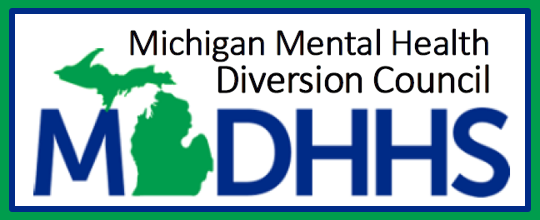Mental health providers
Community Mental Health and other providers
Download Webinar Trainings Testimonials
Many individuals living with a serious mental illness (SMI) do not adhere to outpatient treatment, often resulting in increased rates of suicide and self-harm, violent behavior, insecure housing, high utilization of ERs, and frequent contact with law enforcement. These behaviors and vulnerabilities lead to high rates of inpatient psychiatric hospitalization and incarceration.
Assisted outpatient treatment (AOT) is a legal mechanism for providing outpatient treatment to individuals living with SMI whose non-adherence places them at risk for negative outcomes. AOT works by compelling the recipient to receive specific treatment that will prevent their condition from worsening and by committing the mental health system to provide treatment. AOT orders allow concerned parties (such as families and treatment providers) to intervene on behalf of an individual living with an SMI without having to wait until that individual reaches a crisis, increasing the individual's ability to function in the community.
AOT and the role of the Community Mental Health system
One of the greatest challenges facing many individuals living with an SMI is their symptoms directly impede their treatment seeking and adherence. AOT is an evidenced-based intervention designed to help clinicians accomplish this task by offering opportunities for intervention before a client is in crisis and by enlisting the support of the court to ensure treatment. Research suggests that intervention as close as possible to the first onset of symptoms or psychotic episodes has the best outcomes. However, treatment is not without its challenges.
Clinicians working for Community Mental Health (CMH) or CMH contracted providers must understand the problems that can be associated with untreated SMI and psychosis (e.g., housing instability, poverty, criminal justice involvement). Together, the client’s illness and its effects can make it incredibly difficult for clinicians to help their clients manage their illness.
Statutorily, the responsibility for implementing and monitoring AOT belongs to the CMH authority where the client resides. This serves a practical purpose for two reasons; first, many of the evidenced-based practices utilized for an AOT order are only available through CMH/CMH contracted providers (e.g., Assertive Community Treatment [ACT]), and second, many individuals living with an SMI have Medicare and are unknown to the CMH authority until they have exhausted their Medicare benefits for inpatient treatment, reducing opportunities for intervention.
When utilized effectively, AOT results in dramatic reductions of harmful behaviors (such as inpatient hospitalizations and arrests) while improving clients’ quality of life. Moreover, AOT orders allow providers to intervene before a client’s condition has reached acute crisis (as is the case with involuntary hospitalization). AOT allows clinicians to effectively intervene to prevent harm, deterioration of a client’s condition, and improve prognosis in the long-term.
What is CMH responsible for?
- Assume responsibility of implementing and monitoring AOT order.
- Develop individual plan of service (IPOS) with the individual within 30 days of the order being issued.
- Connect to and deliver ordered services either directly or through contracted providers.
- Collect baseline data with specific metrics, and follow-up data at regular intervals.
- Comprehensive documentation of engagement, services, and progress.
- Coordinate with system of care to facilitate warm hand-offs.
- Communicate with the court about progress and/or any issues that arise.
What are psychiatrists responsible for?
- Evaluate and assess the individual's current and past mental health condition and treatment history to determine appropriateness of AOT.
- Provide court testimony.
- Collaborate with other parts of the support team, and the individual for treatment planning.
- Medication management and review when necessary.
Action steps for CMH and provider agencies:
- Educate staff on changes to the mental health code and AOT, including eligibility and best candidates.
- Develop internal process for identifying and screening patients for appropriateness of AOT.
- Train staff on filing petitions and all court forms.
- Educate staff on court processes, requirements to testify and court etiquette.
- Have procedures in place with probate court, hospitals, emergency rooms, prosecutor's office, and law enforcement regarding various aspects of the AOT processes.
Frequently asked questions for providers
- How is adherence to an AOT order enforced?
Ideally, the individual’s case manager will be the primary contact for concerns over AOT adherence. It is imperative that the treatment provider find a way to engage the member. If the individual is not voluntarily coming into treatment, it is incumbent upon the treatment provider to creatively find ways to engage them. An AOT order requires treatment and does not allow for people to choose not to receive services. Family/friends should reach out to the individual’s case manager if they are concerned about the person’s adherence to treatment. If efforts to reach the case manager are unsuccessful, the concerned party can file a notice of non-compliance (PCM 230) with the court. For case managers, if an individual is not adhering to their treatment plan, their case manager should first try to engage them directly and/or through other contacts before filing a notice of non-compliance (PCM 230) with the court. At that point, an Order for Examination/Transport (PCM 209a, often referred to as a “transport order”) may be employed to facilitate reassessment of the individual at a designated screening location. From there, modifications to the order can be recommended to the court if necessary.
